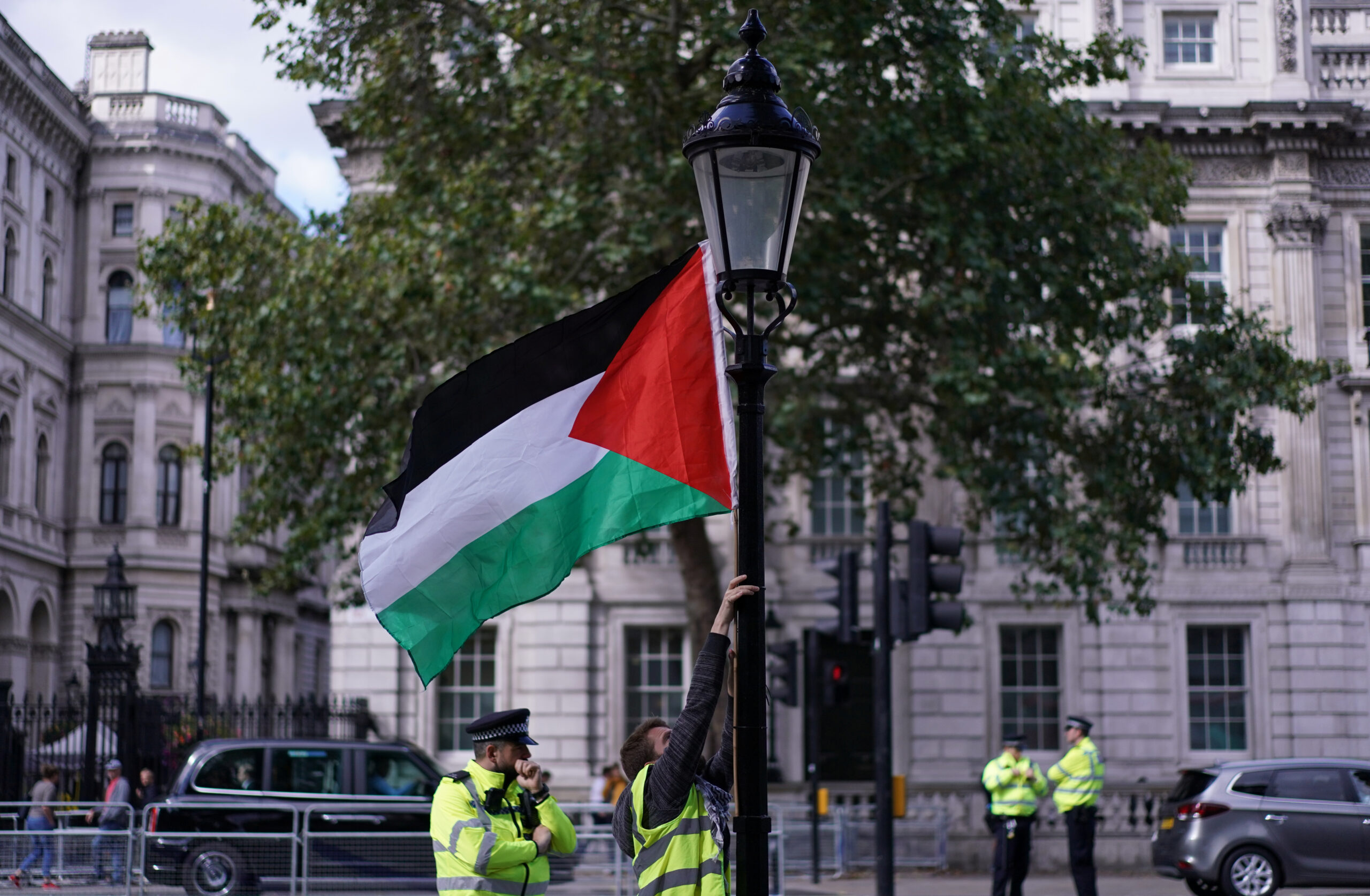‘Listen to Your Own Workers’ on Gaza, Union Tells Whitehall Bosses
'Wake up.'
by Rivkah Brown
13 June 2025

The head of a union that represents some 190,000 civil servants has demanded that Whitehall chiefs take seriously the concerns of hundreds of staff about Gaza, calling leaders’ recent response to one staff group “reprehensible”.
In a letter sent on Friday morning, and seen exclusively by Novara Media, head of the Public and Commercial Services (PCS) union Fran Heathcote told officials at the Cabinet Office that staff concerns that they may be aiding the Gaza genocide had been met with a “dismissive, inadequate, ill-informed and insensitive” response.
In a statement to Novara Media, Heathcote said it was “blindingly obvious that potential war crimes and acts of genocide are taking place” and demanded that the civil service “stop all work … which in any way potentially enables” them.
Over 300 officials at the Foreign, Commonwealth and Development Office (FCDO) wrote to foreign secretary David Lammy in May urging him to change course on Gaza. The group was rebuffed by their superiors, who suggested they speak to HR instead.
In a letter exchange published in full by Novara Media, Sir Oliver Robbins and Nick Dyer, the two most senior civil servants in the department, advised that staff unhappy with potentially abetting a genocide speak to staff counsellors or resign.
The story became national news five days after Novara Media broke it when the BBC covered it without credit.
In her letter sent on Friday to Cat Little, the chief operating officer of the UK civil service and the most senior civil servant in the Cabinet Office, Heathcote said that the foreign secretary’s condemnation of Israel’s actions in Gaza contradicted his own inaction in the region. She cited Lord Ian Austin’s recent trade trip to the Israeli city of Haifa; the UK’s refusal to intervene to protect Gaza-bound aid ship the Madleen after Israel seized it and its crew, despite the vessel bearing the UK’s Red Ensign; and Robbins and Dyer’s “dismissive response” to Foreign Office staff concerns.
“Such confusion cannot be allowed to reign on such serious matters,” Heathcote wrote. “Civil servants must be able to clearly understand what the government’s position is if they are to fulfil their roles and obligations.”
PCS has written to civil service leaders on several occasions since the start of the Gaza genocide, most recently in July last year, shortly after the general election, and in August last year, following legal research indicating that civil servants could be held personally liable for their role in Israeli war crimes (this potential liability was one of the factors that prompted FCDO diplomat Mark Smith to resign the same month). The PCS wrote a further letter in November.
The PCS union has struggled to agitate internally within the civil service over Gaza, causing frustration among its members. “We’re a trade union – we should act like it,” one PCS member wrote in a message to Novara Media. “Workers have power and we could stop this if we mobilised and stopped acting like a letter once a year will do anything.”
They added that workers’ refusal in the Department for Business and Trade (DBT) to perform work on Israel was exactly the kind of action PCS could help to spread across Whitehall, but largely hasn’t.
“Across the board, trade unions have outsourced solidarity to campaigns and Saturday demos, rather than workers’ power, in workplaces, to effect change.”
In April last year, the Palestine General Federation of Trade Unions wrote to the PCS thanking DBT members for their action, and asking for more “concrete solidarity”.
Such solidarity would require defying an expectation widespread in the civil service that officials follow ministerial direction, even if they disagree strongly with it. “The bargain at the heart of the British civil service,” Robbins and Dyer wrote in their letter to FCDO officials in May, “is that we sign up to deliver the policies of the Government of the day wholeheartedly, within the limits imposed by the law and the civil service code.”
Much of the civil service, particularly the FCDO, is rigidly hierarchical and strongly discourages speaking out – a culture that contrasts sharply with US departments of state, where leaks and whistleblowing are much more common. “A fear of leaks is a big part of the UK system,” one FCDO official told Novara Media. “The American system is so leaky, and we don’t want ours to become like that. We pride ourselves on the consistency of messaging.”
Whitehall’s watertight atmosphere has persisted despite the precedent set by the Iraq war and subsequent Chilcot inquiry, which warned of “groupthink” and an overly “can-do attitude” within government.
Rivkah Brown is a Novara Media commissioning editor and reporter.

